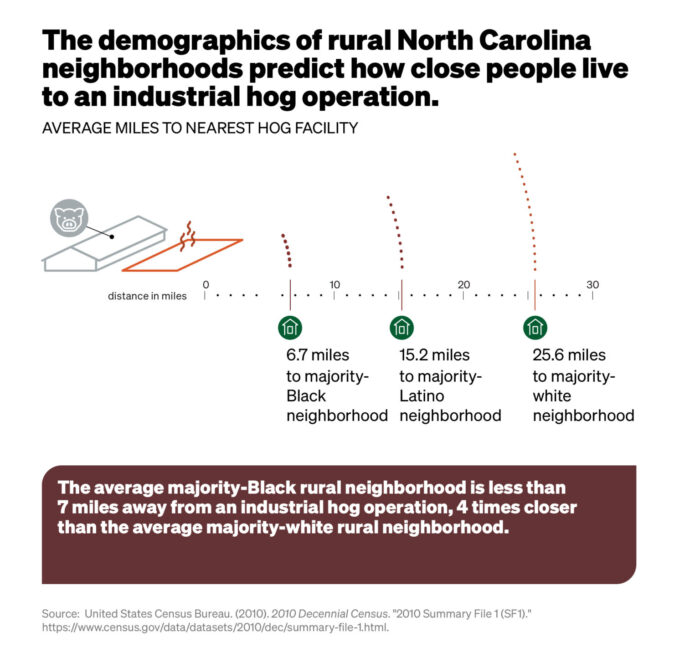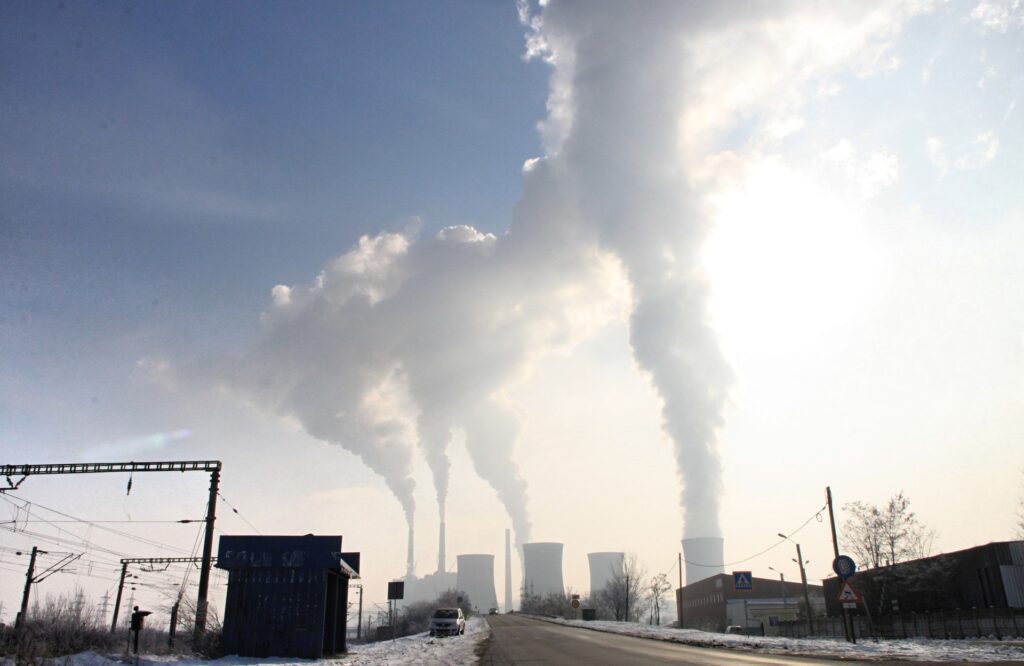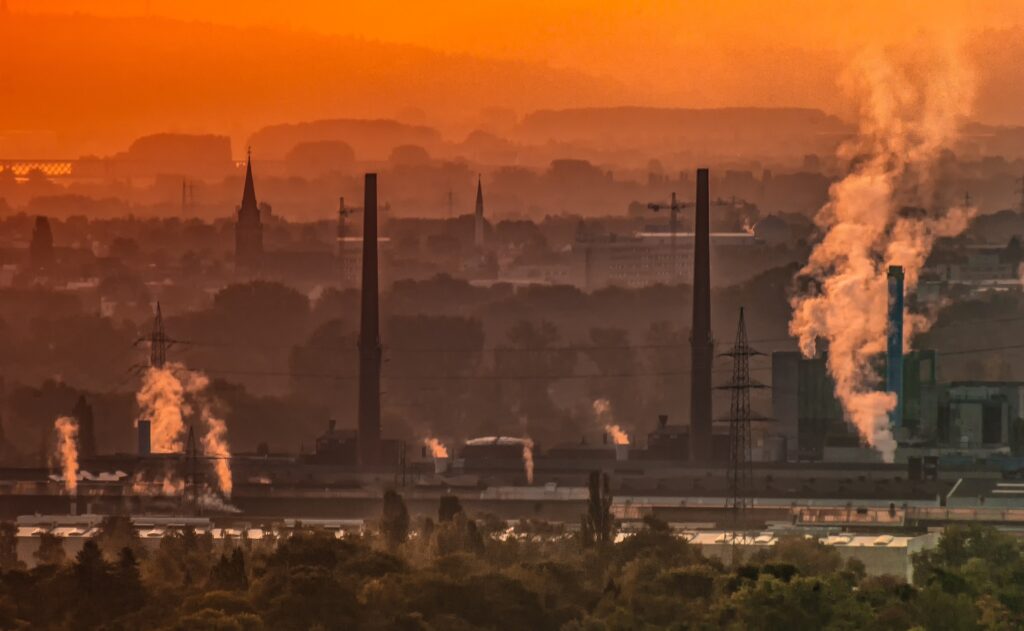- The eastern part of North Carolina has a large number of hog operations which leads to unpleasant odors and air and water pollution.
- The Southern Environmental Law Center (SELC) is representing residents who are pushing for protection from the hog industry that primarily affects Black, Brown, Latino and Indigenous communities.
- In 2022, the U.S. Environmental Protection Agency agreed to investigate the discriminatory impact of industrial hog operations on primarily Black and Latino communities.
- SELC challenged a permit issued by the North Carolina Department of Environmental Quality that would allow hog operations to use untreated hog waste to produce biogas while spraying the waste on surrounding fields with minimal oversight. The general permit fails to comply with a state law requiring cleaner technology and does not include protections against pollution for nearby communities.
- SELC and the Environmental Justice Community Action Network are hoping for positive results and some real progress.
By: SELC | January 26, 2023
In eastern North Carolina, where pigs outnumber people 30-1, it’s not uncommon for folks living near the region’s many hog operations to keep candles burning to tolerate the odor…
Layered on top of these unpleasant smells is air and water pollution from various components of the commercial hog industry that proliferate across this rural part of North Carolina, which is known for its agricultural heritage and rich farmland.
The landscape is too often interrupted by warehouse-sized holding pens, facilities that turn hog waste into energy that the industry calls biogas and claims is good for the environment, and industrial hog operations that store and spray billions of gallons of hog feces and urine onto nearby fields.
SELC is representing Sampson and Duplin County residents pushing for protections from the hog industry that primarily dumps pollution on Black and Brown, Latino, and Indigenous communities, and areas where household income is below the state average.
Read more from SELC.



